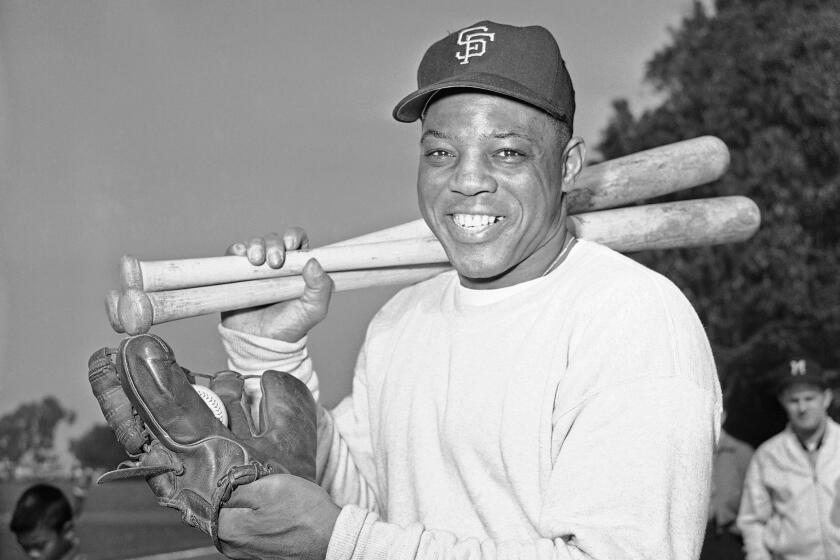President Barack Obama’s legacy: The good, bad, ugly and as-yet-unknown
President Barack Obama’s legacy is unusual for its complexity. The San Diego Union-Tribune Editorial Board understands the view of many Democrats that Obama would have been able to get more done in a less partisan atmosphere. But both parties contributed to Washington’s dysfunction. Like Obama, President George W. Bush was seen by political rivals as an illegitimate pariah. Ultimately, the 44th president will be judged on what he got done and what survives Congress and the 45th president. In our estimation, Obama’s record is mixed. For simplicity, our review follows in four categories.
The good: Obama’s election as the first African-American president was a powerful symbol in a nation that was long officially hostile to blacks — and not that long ago. While talk of a “post-racial America” was uncomfortable to some and unrealistic to many, Obama nominated the nation’s first two black attorneys general and its first Hispanic Supreme Court justice and appointed what would have been, with Senate confirmation, its first Muslim federal judge.
This symbolism has a resonance that goes far beyond our shores. Obama’s global travels and his many televised town halls and meetings with students have not only improved the United States’ reputation, they’ve helped restore the image of America as a beacon for the world.
His patience and persistence also paid off as he presided over the recovery following the Great Recession, oversaw the operation that killed Osama bin Laden and built international support for the 2016 Paris accord on climate change, demonstrating decisive leadership, at least on these issues.
The Affordable Care Act, for all its flaws, deserves praise as well. This editorial board has long predicted the current problems Obamacare faces. Yet the ACA provided health insurance for 20 million previously uncovered Americans and reset the health care debate from indifference about the uninsured to “insurance for everybody,” as President-elect Donald Trump vowed last week. Its provision letting children remain on their parents’ policies until age 26 was an inspired way to help young adults.
The president has also been a force for criminal justice and education reform, pardoning record numbers of prisoners and persuading many states — with California an unfortunate exception — to focus on improving teacher training and metrics.
The bad: In 1945, there were 41 people working for every American receiving Social Security benefits. By 2030, there will be two workers for every American receiving Social Security and Medicare benefits. If any issue needs a president to “bend the arc of history,” it is this one. But Obama, like Bush and Bill Clinton before him, not only gave up on entitlement reform after grasping the political pain involved in such changes, he basically stopped talking about this gigantic problem.
On foreign policy, Obama inherited an awful mess and then — heeding the wishes of most Americans — began to disentangle our nation from its painful wars in Iraq and Afghanistan. He was wise to end the U.S. isolation of Cuba. But Obama’s initial failure to assess the threat posed by the Islamic State remains baffling and hints at naivete about jihadism’s powerful appeal. And in Syria, to the disappointment of many U.S. allies, America’s hands-off approach to the civil war helped trigger a massive refugee crisis with such far-reaching fallout that it appears to be remaking European politics. It is not just self-serving for Obama to insist that his options were either a full-on ground war against the Assad regime or occasional airstrikes. It is wrong.
Meanwhile, China has continued to expand its presence in the South Chinese Sea and to cultivate better ties with neighboring countries without a meaningful U.S. response. It was once inconceivable that such traditional U.S. allies as South Korea might choose to partner with China. No more.
Given all this and Russia’s growing cyber threat, it is impossible to look at where America stood in the world on Jan. 20, 2009, and where it stands now and conclude our nation is a safer place.
The ugly: The Obama administration has been the least transparent and the most antagonistic toward the media since the Nixon administration. A 2013 report by the Committee to Protect Journalists documents case after case of whistleblowers being punished and public documents being kept from the public. So much for Obama’s promise to lead “the most transparent administration in history.”
The unknown: If the deal struck with Iran by the U.S. and other world powers prevents the long-feared nuclear confrontation between Iran and Israel, it should be viewed as a success. If it also achieves what Obama envisions — establishing a Middle East balance of power that yields stability and a less radical Tehran — it will be a triumph for the ages. If.
If the Precision Medicine Initiative the president launched with his 2015 State of the Union speech lives up to its promise, it could radically reduce human misery and increase life expectancy. Dr. Eric Topol of the San Diego-based Scripps Research Institute is co-leader of the project, which is built on the idea that tailoring treatments to individuals based on their genetic makeup and health histories makes far more sense than a one-size-fits-all approach. If it succeeds, it will be remembered as akin to the Manhattan Project for medicine. If.
Our mixed conclusions won’t sit well with the many partisans in our polarized nation. But an administration has so many duties that it is hard to fathom anyone declaring a president to be a total success or an utter failure. We believe Barack Obama falls into neither category — and we think Americans won’t stop arguing about it for decades.
Twitter: @sdutIdeas
Facebook: UTOpinion

